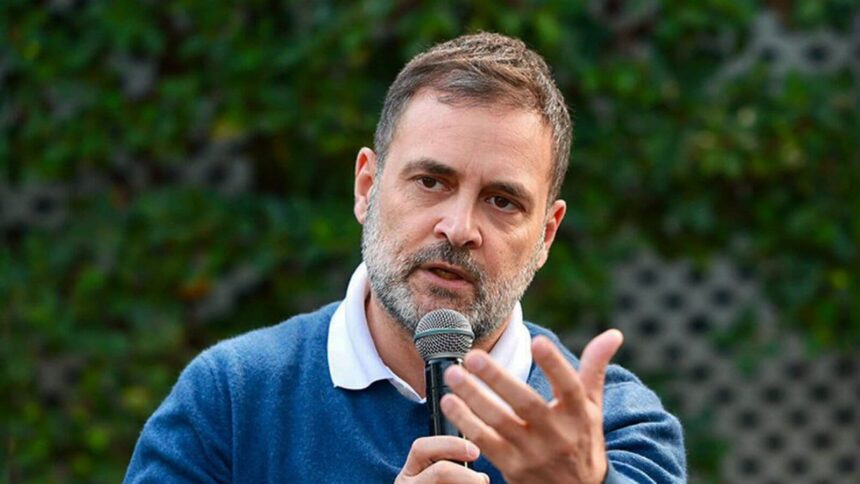The Controversy Over Independence: Rahul Gandhi’s Response to Mohan Bhagwat
In recent days, a fierce political controversy has emerged in India, centering around remarks made by Rashtriya Swayamsevak Sangh (RSS) chief Mohan Bhagwat regarding the significance of the Ram Mandir’s ‘Pran Pratishtha’ ceremony. Bhagwat characterized the ceremony as akin to India’s "true independence," a statement that has ignited strong criticism from various political leaders, most notably Congress leader Rahul Gandhi.
Background of the Controversy
The Ram Mandir is a significant cultural and religious site in India, with historical roots that date back centuries. Its construction has been a contentious issue, closely linked with various political and communal considerations. As the temple nears completion, its inauguration ceremony is anticipated to coincide with significant political narratives surrounding Indian nationalism and identity.
Mohan Bhagwat’s statement, equating a religious ceremony to true independence, has raised eyebrows not only for its timing but also for its implications regarding India’s historic struggle for freedom from British colonial rule. For many, this statement questions the very foundation of the independence movement, which is based on the collective sacrifices of countless Indians.
Rahul Gandhi’s Reaction
In a robust rebuttal, Rahul Gandhi condemned Bhagwat’s remarks as "nonsense" and "an act of treason." Gandhi expressed that Bhagwat’s comments undermine the legitimacy of India’s 1947 independence, which is a point of national pride for many Indians. He stated, “To say that India did not get independence in 1947 is an insult to every single Indian person.”
Gandhi further emphasized the gravity of Bhagwat’s statements, suggesting that in a different context or country, such remarks could lead to serious consequences, including arrest. He framed the RSS chief’s ongoing commentary on the independence movement and the Constitution as an attack on the democratic principles enshrined in the Indian Constitution. "What he said yesterday is treason because it is stating that the Constitution is invalid, and the fight against the British was invalid," Gandhi asserted.
Public and Political Reactions
The reaction to Bhagwat’s remarks has been swift and multifaceted. Supporters of the RSS and ruling Bharatiya Janata Party (BJP) view the emphasis on the Ram Mandir and Hindu cultural symbols as integral to a renewed sense of Indian identity. Conversely, critics argue that such rhetoric diverts attention from the more secular and pluralistic foundations of the Indian Republic.
As the political landscape becomes increasingly polarized, this debate reflects deeper ideological divides within India. While the ruling party promotes a narrative centered on religious nationalism, the opposition, led by figures like Gandhi, emphasizes a historical narrative rooted in secularism and inclusiveness.
The Impact of the Discourse
The implications of this ongoing discourse extend beyond mere political posturing. It raises crucial questions about the relationship between religion, nationalism, and the legacy of independence in contemporary India. As leaders from various parties engage in this heated dialogue, the public remains divided, reflecting varied interpretations of what independence means in a diverse society.
The discourse surrounding the Ram Mandir and the interpretation of India’s independence is likely to shape the political landscape as the country moves toward upcoming elections. With rising tensions around issues of identity and belonging, the dialogue between figures like Rahul Gandhi and Mohan Bhagwat will continue to influence public sentiment and political strategy.
Conclusion
The conflict ignited by Mohan Bhagwat’s remarks and Rahul Gandhi’s vigorous response signifies a pivotal moment in Indian politics. It showcases a broader struggle over narratives of independence and identity, highlighting the significant role that cultural symbols like the Ram Mandir play in contemporary political discourse. As this debate unfolds, both leaders and followers must navigate the complex web of history, national pride, and communal identity that will inevitably shape India’s future.








